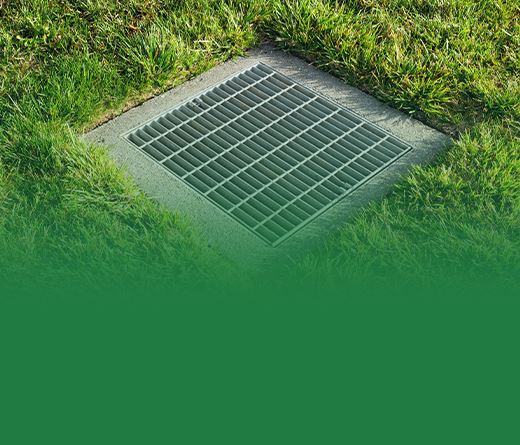
Catch basins are one of the most underrated yet most important pieces of plumbing. They’re essential in preventing flood damages that can be costly or detrimental to your foundation. Fortunately, they’re relatively easy to maintain once you know how. Here’s our recommended method for a good catch basin cleaning.
What Is a Catch Basin?
A catch basin, also called a storm basin or storm drain is a particular kind of drainage system. It collects debris from your yard or street before it can enter your sewer lines or pipes. Most of the time, they’re installed in the backyard of your property. They’re as much a part of your home’s water mitigation system as gutters and downspouts. However, they aren’t as visible, which can easily lead to neglect.
Catch basins are also in your storm sewer systems to remove pollutants carried by stormwater runoff. They capture the pollutants in a sump, which come in a variety of styles and depths.
The solids captured in the sump may have elevated concentrations of metals from street runoff. Gravel, sand, oils, and organic material can wreak havoc on your sewer system if left unchecked. That’s why it’s important to give the sump and catch basin regular cleaning.
How Often Should You Clean a Catch Basin?
When it comes to cleaning, catch basins require regular maintenance. It needs to be cleaned or pumped out at least once, preferably twice, a year. This will keep the debris flowing and prevent backup and flooding.
How Do You Clean a Catch Basin?
Start off by inspecting the catch basin and its grate for any obvious signs of obstruction or overflow. Most catch basins can fill up somewhat with debris and still function fine, so there’s no need to panic. Your catch basin could amass up to one-third of its volume in debris each month. Every property and basin is different and can fill up at different rates. However, checking once a month is a safe way to stay ahead of any potential issues.
Check if any of the debris in your sump is not typical waste. It’s also possible that industrial by-products could land in your catch basin and require special removal. If you see a visible sheen, discoloration, cloudiness, noticeable odor, or other unusual substances, it’s possible the waste could be hazardous or contaminated. This would require alerting your local solid waste management office or plumbing service.
If it just looks like normal waste, you’re ready to give your sewer catch basin a proper cleaning. You’ll just need a few tools and tips to get the job done right the first time:
- Get a shovel, a trash can or bag, a pry bar or crowbar, and some work gloves.
- Clean out the grate that sits in front of the catch basin. You may need to pry open the grate with the crowbar if it hasn’t been removed in a long time.
- Carefully lift the catch basin lid and scoop out the debris with your work glove-protected hands into the garbage bag.
- Once you’ve cleared out as much as you can, use the shovel to dig out any compacted soil inside the catch basin. You can also use it to scoop out any stubborn debris.
- Double-check that your catch basin drain is entirely free of tree roots or debris. If If you do see roots or other substantial plants growing, call us or consider another rooter option to assess the functional and structural risks
- Discard the removed trash where it can’t re-enter the catch basin. If you suspect anything you cleared out is not normal waste, it probably can’t go in your trash. Call your local solid waste removal office or a professional plumbing service like Wind River Environmental, so you don’t get hurt disposing of it.
Get Professional Catch Basin Cleanings with Wind River Environmental
If your catch basin is too full, damaged, or infected with something you can’t remove, Wind River Environmental is here to help. We’ve managed municipal and residential basin cleanings and even installed new sewer catch basins, plumbing systems, and more for our customers. Get in touch with us today so we can help you take the best care of your systems!

